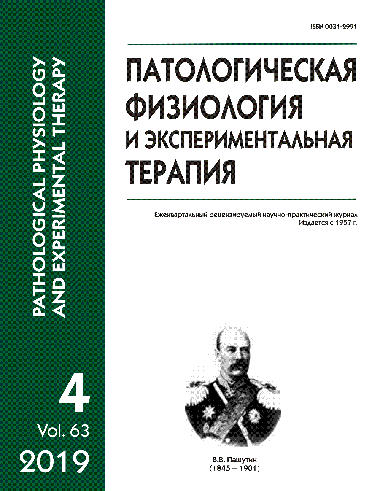Effect of Curcuma longa and Galega orientalis on renal function in rats with experimental diabetes mellitus and acute renal failure
Abstract
Aim. To study effects of the phytomedicines, Curcuma longa and Galega orientalis, on osmosis- and ion-regulating renal functions in rats with experimental diabetes mellitus (DM) and acute renal failure (ARF). Methods. Experiments were performed in two series on Wistar male rats (n=70) with modeled diabetes mellitus (series 1) and acute renal failure (series 2). In each series, the animals were divided into 3 groups, 1) rats of group 1 receiving a standard diet; 2) rats of groups 2 and 3 receiving a standard diet supplemented with turmeric or galega (2% of food weight), respectively. On the 7th day of the experiment, the diuretic and ionuretic renal function was studied in fasting state and after 5% water loading. Concentrations of ions in urine and plasma were determined by flame photometry; osmotic concentrations of biological fluids were measured by cryoscopy; blood biochemical parameters were measured by colorimetry. Results. In diabetic rats, background diuresis and sodium and potassium excretion were significantly higher than in the control animals. In rats with acute renal failure, diuresis and ionuresis were significantly lower, particularly after the water loading. Turmeric and galega supplementation improved the osmotic and ion-regulating renal function in diabetic rats and left practically unchanged these functions in rats with acute renal failure. Conclusion. In rats with diabetes mellitus, both herbal remedies reduced concentrations of glucose, creatinine, and urea and improved ion-osmotic parameters of blood plasma with a more pronounced effect of turmeric. In acute renal failure, these phytomedicines did not produce the described effects.






